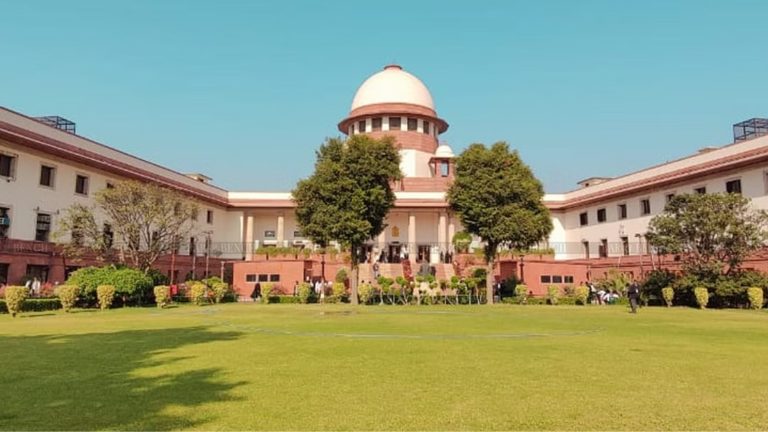Introduction
This article examines the Supreme Court’s significant ruling in Vaneeta Patnaik v. Nirmal Kanti Chakrabarti & Ors., which establishes important judicial precedent under the Sexual Harassment of Women at Workplace (Prevention, Prohibition and Redressal) Act, 2013 (hereinafter referred to as the “PoSH Act”). The judgment addresses fundamental questions concerning the statutory limitation framework under Section 9 of the PoSH Act, the jurisprudential distinction between “continuing” and “recurring” wrongs in harassment cases, and the necessary separation of administrative decisions from allegations of sexual harassment.
The decision is particularly noteworthy because, despite dismissing the complaint as time-barred without conducting any inquiry or making any finding of guilt, the Court issued an unusual directive requiring the judgment to be permanently included in the Vice-Chancellor’s professional resume. This direction merits careful consideration regarding its implications for established principles of natural justice in cases where complaints are dismissed on procedural grounds.
Factual Matrix and Parties
The appellant, Professor Vaneeta Patnaik, served as a faculty member at the West Bengal National University of Juridical Sciences, Kolkata (hereinafter referred to as “NUJS” or “the University”). The first respondent, Dr. Nirmal Kanti Chakrabarti, was appointed as Vice-Chancellor of NUJS on July 3, 2019.
The chronology of events, as alleged by the appellant,begins in September 2019, when, according to her complaint filed in December 2023, the Vice-Chancellor invited her to his office and insisted that she accompany him for dinner, stating that such an association would benefit her personally. During this encounter, the Vice-Chancellor allegedly touched her hand in a manner that caused her significant discomfort, whereupon she left his office quietly.
The Vice-Chancellor again called her to his office in October 2019 and asked whether she had thought over his proposal for going out for dinner. The appellant told him that she was not comfortable and wanted to keep the relationship professional only. He thereafter demanded sexual favour from her and threatened her if the offers were declined. In October 2019, her promotion was put on hold by the Executive Council. Finally, the Executive Council in its meeting held on April 2, 2022 accepted the recommendations of the Selection Committee and cleared her for promotion.
The final alleged incident of direct sexual harassment occurred in April 2023, when the Vice-Chancellor purportedly asked the appellant to accompany him on a trip to a resort. Upon her categorical refusal, he allegedly threatened that her career would suffer badly. Subsequently, on August 29, 2023, the appellant received formal communication removing her as Director, Centre of Financial, Regulatory and Governance Studies.
Also read – Written Complaint Mandatory, Hostility or Adverse Employment Action is no Sexual Harassment; Kerala HC
In the meantime, some complaints were raised by faculty members against her, leading the Executive Council to appoint the Principal Secretary, Law, Government of West Bengal, as a one-man inquiry commission to investigate alleged misutilization of grants received from the University Grants Commission and issues relating to the National Foundation for Corporate Governance. The Executive Council resolved that a sum of Rs. 1,00,000/- be immediately refunded by NUJS. Thereafter, the appellant allegedly made complaints of harassment and victimisation to the members of the Executive Council through e-mails and even to the Chancellor.
The formal complaint under the PoSH Act was eventually filed by the appellant with the Local Complaints Committee on December 26, 2023 alleging sexual harassment on the part of the respondent no. 1. The LCC rejected the complaint as barred by limitation since the last alleged incident of sexual harassment occurred in April 2023, rendering the complaint beyond both the prescribed three-month period and the extendable six-month period under Section 9 of the PoSH Act.
Statutory Framework Under Consideration
The Supreme Court’s analysis centred on the interpretation of key provisions of the PoSH Act, particularly the definition of sexual harassment and the mandatory limitation period for filing complaints.
What is ‘sexual harassment’
Section 2(n) of the PoSH Act defines ‘sexual harassment’ comprehensively to include any unwelcome act or behaviour, whether directly or by implication, encompassing physical contact and advances, demands or requests for sexual favours, sexually coloured remarks, exhibition of pornography, or any other unwelcome physical, verbal, or non-verbal conduct of a sexual nature.
Section 3 of the PoSH Act, while prohibiting sexual harassment of women at any workplace, describes specific circumstances that constitute sexual harassment. These include implied or explicit promises of preferential treatment in employment, implied or explicit threats of detrimental treatment in employment, threats concerning present or future employment status, interference with work or creation of an intimidating, offensive, or hostile work environment, and humiliating treatment likely to affect health or safety of the recipient.
“On a combined reading of both the above provisions,” said the Supreme Court,“it is manifest that not only the unwelcome act or behaviour in the form of physical contact or advances, a demand or request for sexual favours, making sexually coloured remarks, showing pornography or any unwelcome physical, verbal or non-verbal conduct of sexual nature but also any other circumstances connected with the actor behaviour of sexual harassment, like implied or explicit promise of preferential treatment in employment, threat about the present and future employment status,interference with work or creating an intimidating,offensive or hostile work environment or subjecting to humiliating treatment which may likely affect her health or safety, would also amount to acts or behaviour of sexual harassment.” (Para 12)
Limitation
The critical provision under consideration was Section 9 of the PoSH Act, which mandates that any aggrieved woman must file a written complaint of sexual harassment within three months from the date of the incident, or in cases involving a series of incidents, within three months from the date of the last incident. The second proviso to Section 9 permits the Internal Committee or the Local Complaints Committee to extend the time for filing a complaint by an additional three months, provided reasons are recorded in writing and the Committee is satisfied that prevailing circumstances prevented the timely filing of the complaint.
Judicial History and Proceedings
The case traversed multiple judicial forums before reaching the Supreme Court. While the Local Complaints Committee and the Division Bench of the High Court held that the complaint was time-barred, the Single Judge of the High Court took a contrary view, holding that subsequent administrative actions constituted continuing harassment that extended the limitation period.
The Local Complaints Committee rejected the appellant’s complaint as time-barred, determining that the last incident of alleged sexual harassment occurred in April 2023, while the complaint was filed on December 26, 2023, which exceeded not only the prescribed three-month limitation period but also the maximum extendable period of six months.
The Single Judge of the Calcutta High Court, vide judgment dated May 22, 2024, quashed the order of the Local Complaints Committee and directed a fresh hearing on the merits. The learned Single Judge held that the appellant continued to be subjected to threats of detrimental treatment in her employment even after April 2023, and that the Vice-Chancellor had created an intimidating, offensive, and hostile work environment for her. Consequently, the complaint was deemed to be within the prescribed time limit, treating the subsequent events as the last incident of sexual harassment.
However, the Division Bench of the Calcutta High Court, hearing FMA No. 873 of 2024, took a contrary view in its judgment dated December 23, 2024. The Division Bench held that the administrative actions taken against the appellant after April 2023 were collective decisions of the Executive Council, comprising eminent academicians, jurists, and even Supreme Court Judges, and were not merely personal actions of the Vice-Chancellor. The Court found it improbable for the Vice-Chancellor to have prevailed over or manipulated the decisions of such a distinguished Executive Council. The Division Bench concluded that the alleged incidents of harassment, if any, after April 2023 did not constitute sexual harassment, and noted that the appellant had not made any allegations of sexual harassment against the Vice-Chancellor in her communications to the Chancellor and Executive Council prior to December 2023.
Issues Before the Supreme Court
The fundamental issue before the Supreme Court was whether the Division Bench of the High Court was justified in dismissing the appellant’s complaint on the ground that it was barred by limitation under Section 9 of the PoSH Act.
This seemingly straightforward question of limitation involved complex considerations regarding the scope of continuing sexual harassment, the relationship between administrative actions and harassment allegations, and the proper interpretation of temporal requirements under the PoSH Act.
Supreme Court’s Analysis and Legal Reasoning
Framework of Limitation Under the PoSH Act
The Supreme Court commenced its analysis by emphasizing the mandatory nature of the limitation provisions under Section 9 of the PoSH Act. The Court observed that complaints of sexual harassment are “mandatorily required to be filed within three months from the date of the last incident of harassment or within a further extended period of three months, i.e., within a maximum period of six months from the date of the last incident of sexual harassment.” (Para 14)
The Court recognized that while limitation is ordinarily “a mixed question of fact and law,” and it may not be possible “to throw out” a complaint at the threshold without collecting material on the factual aspects relating to the limitation, there are circumstances where a complaint may be rejected immediately. Specifically, “where a complaint on the simple reading of the averments made therein appears to be patently barred by limitation, it can be rejected at the very first instance on the analogy of Order VII Rule 11 CPC ( Code of Civil Procedure), without even calling the other side to participate in the proceedings.” (Para 15)
Distinction Between Continuing and Recurring Wrongs
A crucial aspect of the Court’s reasoning involved the distinction between “continuing wrong” and “recurring wrong,” for which the Court relied upon the precedent established in Union of India v. Tarsem Singh (2008) 8 SCC 648. The Court explained that a “continuing wrong” occurs when the injury itself persists, whereas a “recurring wrong” involves situations where a fresh cause of action arises each time an incident occurs.
Applying this distinction to the facts of the case, the Supreme Court held that the alleged act of harassment in April 2023 was complete in itself and had not continued thereafter. The administrative measures undertaken in August 2023 were independent actions that constituted collective decisions of the National Foundation for Corporate Governance and the Executive Council, which could not be solely attributed to the Vice-Chancellor. “The said decision,” observed the Court,“may have caused inconvenience to the appellant or may have given an impression that they are in line with previous acts of harassment, but they were not part of the continued sexual harassment.” The Court categorically held:“The subsequent events have no connection to the earlier act of sexual misconduct and as such, fall clearly out of the purview of acts or behaviours amounting to sexual harassment. In this way, the incident of April 2023, remains the last event related to sexual harassment.” (Para 29)
Analysis of Administrative Actions and Their Relationship to Sexual Harassment
The Court undertook a detailed examination of the administrative actions taken against the appellant subsequent to April 2023, particularly her removal as Director, Centre of Financial, Regulatory and Governance Studies, and the initiation of an inquiry by the Executive Council.
Regarding the removal from directorship, the Court found that this action arose from a complaint received from the Central Government undertaking, namely the National Foundation for Corporate Governance, which specifically named the appellant. The action was taken independently based on allegations that the project report was not submitted within the stipulated time and that the sanctioned amount for the project should be refunded. The Court noted that the Memorandum of Understanding was signed by the appellant with the National Foundation for Corporate Governance, and the relevant bank account was also under her control.
The Court concluded that the removal of the appellant as Director of the Centre for Financial, Regulatory and Governance Studies could not be attributed as an act of sexual harassment in connection with previous incidents, as it was based upon the report of the National Foundation for Corporate Governance, an independent body.
Similarly, the inquiry into project funds was undertaken by the Executive Council as a collective decision rather than a unilateral action of the Vice-Chancellor. The Court determined that such administrative actions were administrative in nature and did not create a gender-based hostile environment, falling short of constituting acts of sexual harassment.
Requirement of Direct Nexus
The Supreme Court placed significant emphasis on the language used in Section 3(2) of the PoSH Act, particularly the expressions “in relation to” or “connected with.” The Court observed that the use of these expressions clearly demonstrates that there must be a direct link between the action complained of and an overt act of sexual harassment.
Based on its analysis of the facts, the Court found no such direct link between the last incident of sexual harassment that occurred in April 2023 and the subsequent administrative actions taken in August 2023 or December 2023. The Court concluded that the subsequent events had no connection to the earlier act of sexual misconduct and fell clearly outside the purview of acts or behaviours amounting to sexual harassment. (Para 27)
Consideration of the Appellant’s Own Conduct
The Supreme Court noted several aspects of the appellant’s conduct that supported the conclusion that the April 2023 incident was the last incident of sexual harassment. The Court observed that in addressing her grievances to the Chancellor, the appellant had made no mention whatsoever of sexual harassment that may have taken place from August 2023 onwards.
Significantly, the appellant initiated the complaint on December 26, 2023, immediately after the Executive Council meeting on December 21, 2023, which had resolved to inquire into diverse acts of misconduct on her part. This timing, the Court observed, “could give the impression that the complaint was filed in retaliation.” (Para 30)
Furthermore, when filing the complaint, the appellant moved an application for condonation of delay, stating that there were “mitigating circumstances” which she had attempted to resolve within the institution, and only when she failed in this endeavourthat she filed the complaint. The Court noted that the very fact that the appellant was conscious of the delay in her complaint proved that she herself treated the act of April 2023 as the last incident of sexual harassment and accordingly sought to explain the delay in filing the complaint.
The Apex Court’s Direction Regarding Professional Record
Despite dismissing the appeal and upholding the Division Bench’s finding that the complaint was time-barred, the Supreme Court issued a specific direction regarding the inclusion of the judgment in the Vice-Chancellor’s professional resume. This direction warrants examination in light of established principles of natural justice and procedural fairness.
The Specific Direction
The Supreme Court observed: “It is advisable to forgive the wrongdoer, but not to forget the wrongdoing. The wrong which has been committed against the appellant may not be investigated on technical grounds, but it must not be forgotten.” (Para 33)
Based on this philosophy, the Court directed: “In this view of the matter, we direct that the incidents of alleged sexual harassment on the part of respondent no. 1 may be forgiven but allowed to haunt the wrongdoer forever. Thus, it is directed that this judgment shall be made part of the resume of respondent no.1, compliance of which shall be strictly ensured by him personally.” (Para 34)
Legal Concerns
This unusual direction raises significant legal and constitutional concerns that warrant careful scrutiny. The foremost concern relates to the principles of natural justice. The Court issued what is, in effect, a punitive direction despite there being no inquiry into the merits of the allegations and no finding of guilt regarding the alleged acts of sexual harassment. The complaint was dismissed solely on technical grounds of limitation, which meant that there was no occasion for any adjudication as to whether the alleged acts occurred, whether they constituted sexual harassment, or whether the Vice-Chancellor was guilty of any misconduct.
It is respectfully submitted that this direction departs from the fundamental principle of audi alteram partem, inasmuch as the respondent was not afforded an opportunity to defend himself on the merits of the allegations. The requirement that the judgment form part of the respondent’s professional record effectively imposes a permanent note of judicial censure, notwithstanding the absence of any determination on culpability. Such a consequence raises questions of proportionality, as it places a lasting burden on the respondent without the safeguard of a finding following due process.
This concern becomes particularly striking given that the Court itself observed, in paragraph 30 of the judgment, that the timing of the complaint’s filing “could give an impression that the complaint was filed in retaliation,” yet the direction at the same time implicitly assumes the truth of the allegations.
It is respectfully submitted that the direction risks establishing a troubling precedent, whereby courts might feel empowered to impose punitive measures even where complaints are dismissed on procedural grounds. This, in turn, creates the possibility that the very fact of being accused could itself become a form of penalty, irrespective of the ultimate outcome of the proceedings.
Implications and Precedential Value
For Sexual Harassment Jurisprudence
The judgment establishes important benchmarks for the interpretation and application of the PoSH Act. By enforcing the statutory limitation periods under Section 9 with strictness, the Court has made it clear that extension of timelines will not be lightly granted absent compelling evidence of continuing harassment. The high threshold set for proving continuing harassment requires complainants to demonstrate a concrete nexus between subsequent events and the original acts of harassment.
Equally significant is the Court’s clear separation between allegations of harassment and legitimate administrative actions. The ruling underscores that not every adverse administrative measure can be characterised as harassment merely because it follows a sexual misconduct complaint. The insistence on a direct nexus under Section 3(2) provides clarity on the evidentiary standard required to establish continuing harassment.
For Institutional Governance
The judgment affords notable protection to collective decisions taken by bodiessuch as Executive Councils composed of eminent academicians and jurists. The Court’s recognition that such decisions carry a presumption of independence and propriety serves as a safeguard against imputations of individual bias.
For institutions, the ruling highlights the importance of maintaining transparent processes and robust records of collective decision-making. Such documentation not only demonstrates institutional integrity but also provides a defence against allegations that administrative measures are extensions of earlier acts of harassment.
For Due Process and Natural Justice
The most sensitive implication of the judgment arises from the Court’s direction requiring the inclusion of the ruling in the Vice-Chancellor’s professional resume. This direction, issued despite the complaint having been dismissed on limitation grounds and without adjudication on the merits, raises concerns about fairness and proportionality. It suggests a precedent where consequences may be imposed without findings of guilt, potentially unsettling the balance of due process and natural justice.
There is also the possibility that such directions may encourage future litigants to seek judicial interventions even where their complaints are procedurally barred, thereby increasing litigation and creating uncertainty.
Conclusion
The Supreme Court’s judgment in Vaneeta Patnaik v. Nirmal Kanti Chakrabarti & Ors. offers valuable clarity on limitations under the PoSH Act and firmly distinguishes between continuing harassment and independent administrative actions. It will serve as authoritative guidance for practitioners, institutions, and adjudicatory bodies addressing sexual harassment complaints.
At the same time, it is respectfully submitted that the directive requiring the judgment to form part of the Vice-Chancellor’s professional record raises difficult questions about natural justice and proportionality. It creates a tension between dismissing a complaint on procedural grounds while simultaneously directing a consequence that presumes wrongdoing.
The legal community must therefore approach this ruling with nuance—welcoming its contribution to limitation jurisprudence while remaining cautious about the precedential implications of the resume direction for future cases where complaints are dismissed on technical grounds.
Vaneeta Patnaik v. Nirmal Kanti Chakrabarti & Ors.
Civil Appeal arising from SLP (C) No. 17936 of 2025
Judgment Date: September 12, 2025
Citation: 2025 INSC 1106
This article is intended for academic, educational, and informational purposes only. It should not be construed as legal advice or as an advertisement or solicitation for legal services. Readers are encouraged to consult relevant statutory texts and judicial decisions for a complete understanding of the issues discussed.
Stay connected with us on social media platforms for instant updates click here to join our LinkedIn, Twitter & Facebook









